Let’s Learn Series: Let’s Learn About FND with Tom Plender
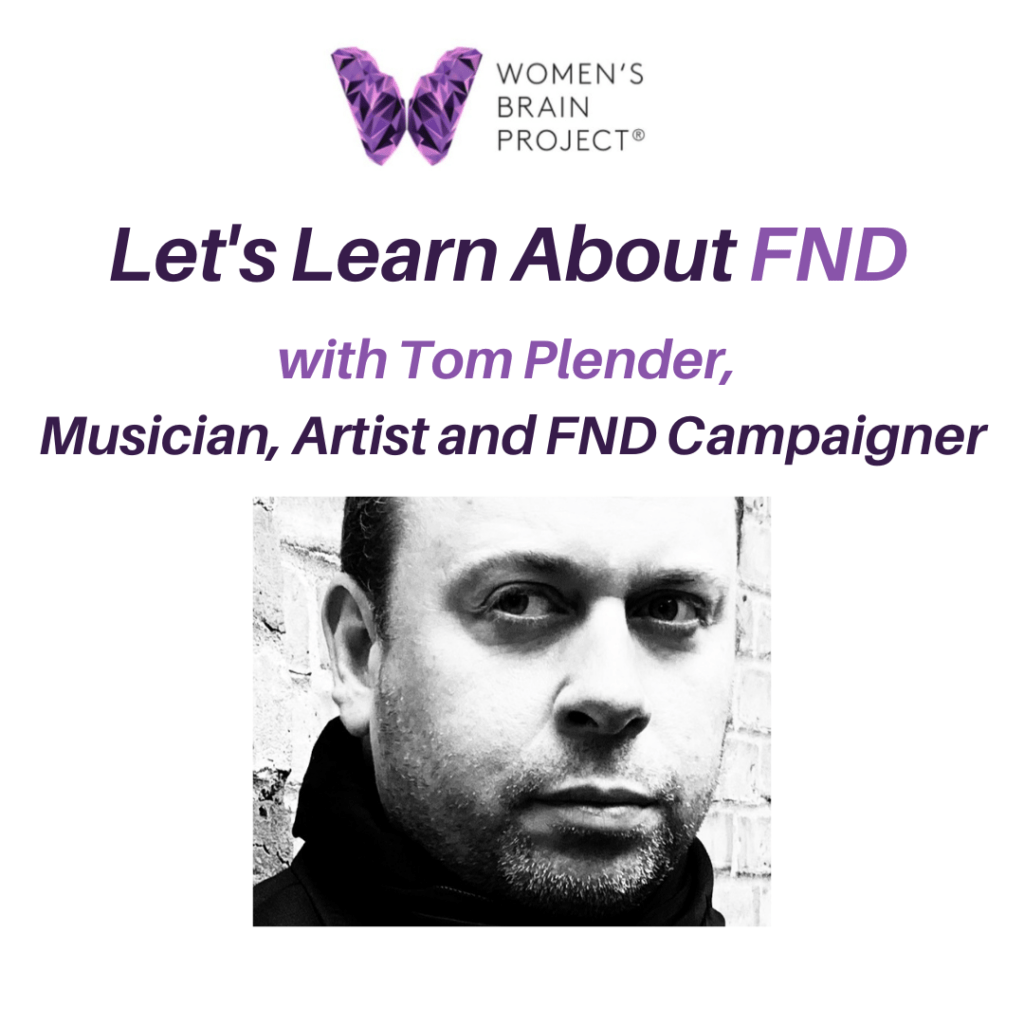
“Functional Neurological Disorder (FND) is a problem with the functioning of the nervous system and how the brain and body send and receive signals.” –FND Hope International The many symptoms of FND can cause impairment in quality of life that is similar to and in some aspects worse than other neurological conditions like Parkinson’s Disease […]
Let’s Learn Series: Let’s Learn About MG with Maya Uccheddu

Myasthenia gravis (MG) is a neuro-muscular autoimmune disease which results from antibodies that block or destroy nicotinic acetylcholine receptors (AChR) at the junction between the nerve and muscle. MG most often occurs in young adult females under the age of 40 but can affect people of all sex and genders, ethnicities and ages. MG usually […]
Let’s Learn Series: Dance and Women’s Health with Rachel Marlins

As many of you will already be aware, Tina Turner passed away this week. Tina Turner remains a great inspiration for many women, a brilliant singer, as well as dancer, she escaped domestic abuse and reinvented herself as a global music superstar. In later years, she suffered her own health issues, including stroke and cancer. […]
WBP Let’s Learn Series: Let’s Learn About MS with Allison Dye

“Multiple Sclerosis (MS) is one of the most common diseases of the central nervous system (brain and spinal cord).” -MS International Foundation MS is the most common disabling neurological disease in young people. People with MS are 2 to 3 times more likely to experience Migraine. People with MS are also more at risk for […]
WBP Let’s Learn Series: Let’s Learn About PD with Richelle Flanagan
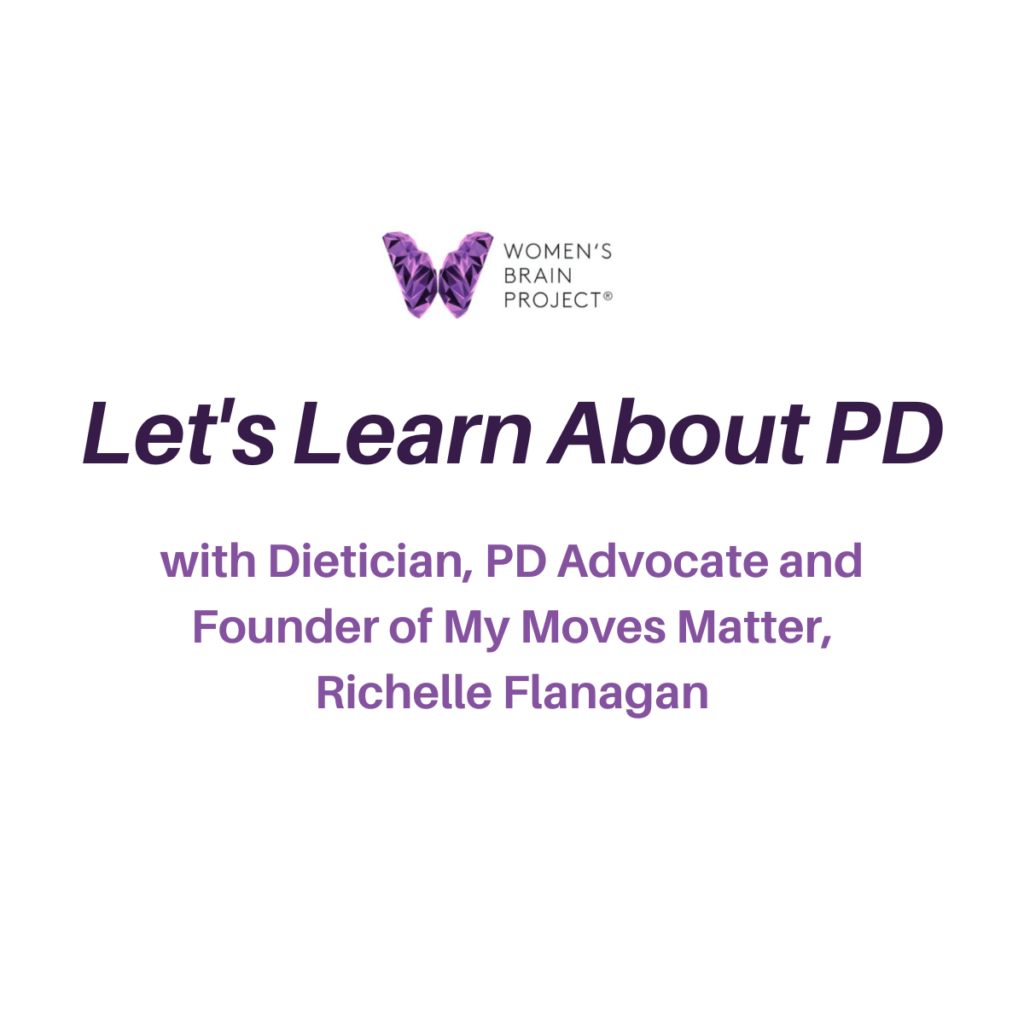
“Parkinson’s Disease (PD) is a neurodegenerative disorder that affects predominately the dopamine-producing (‘dopaminergic’) neurons in a specific area of the brain called substantia nigra.” -Parkinson’s Foundation A misconception about Parkinson’s Disease is that it only affects men, but 40% of people with Parkinson’s around the world are women. It’s also not widely known that 30% of […]
WBP Let’s Learn Series: Let’s Learn About FND with Odette Placido
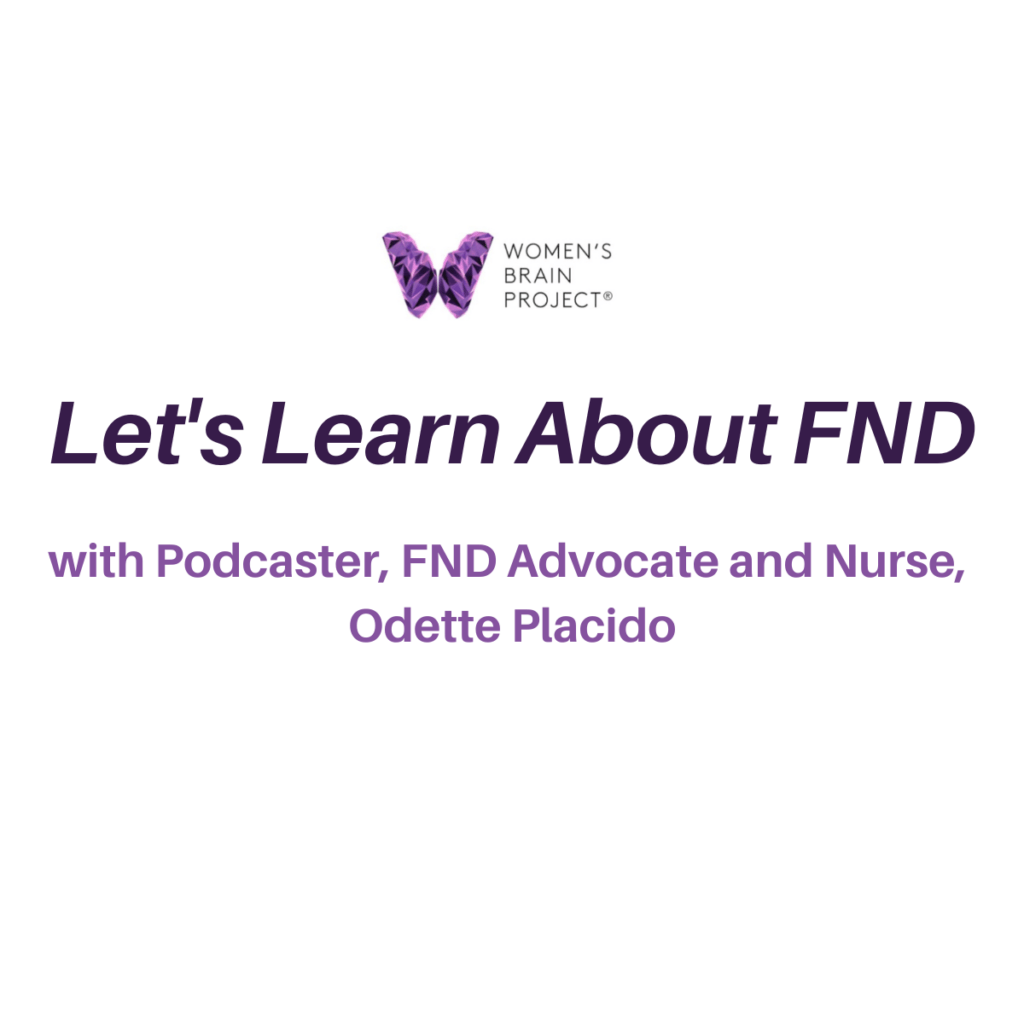
“Functional Neurological Disorder (FND) is a problem with the functioning of the nervous system and how the brain and body send and receive signals.” -FND Hope International The many symptoms of FND can cause impairment in quality of life that is similar to and in some aspects worse than other neurological conditions like Parkinson’s Disease […]
WBP Let’s Learn Series: Let’s Learn About FND with Jess Clough

“Functional Neurological Disorder (FND) is a problem with the functioning of the nervous system and how the brain and body send and receive signals.” -FND Hope International The many symptoms of FND can cause impairment in quality of life that is similar to and in some aspects worse than other neurological conditions like Parkinson’s Disease […]
WBP Let’s Learn Series: Let’s Learn About FND with Tausha
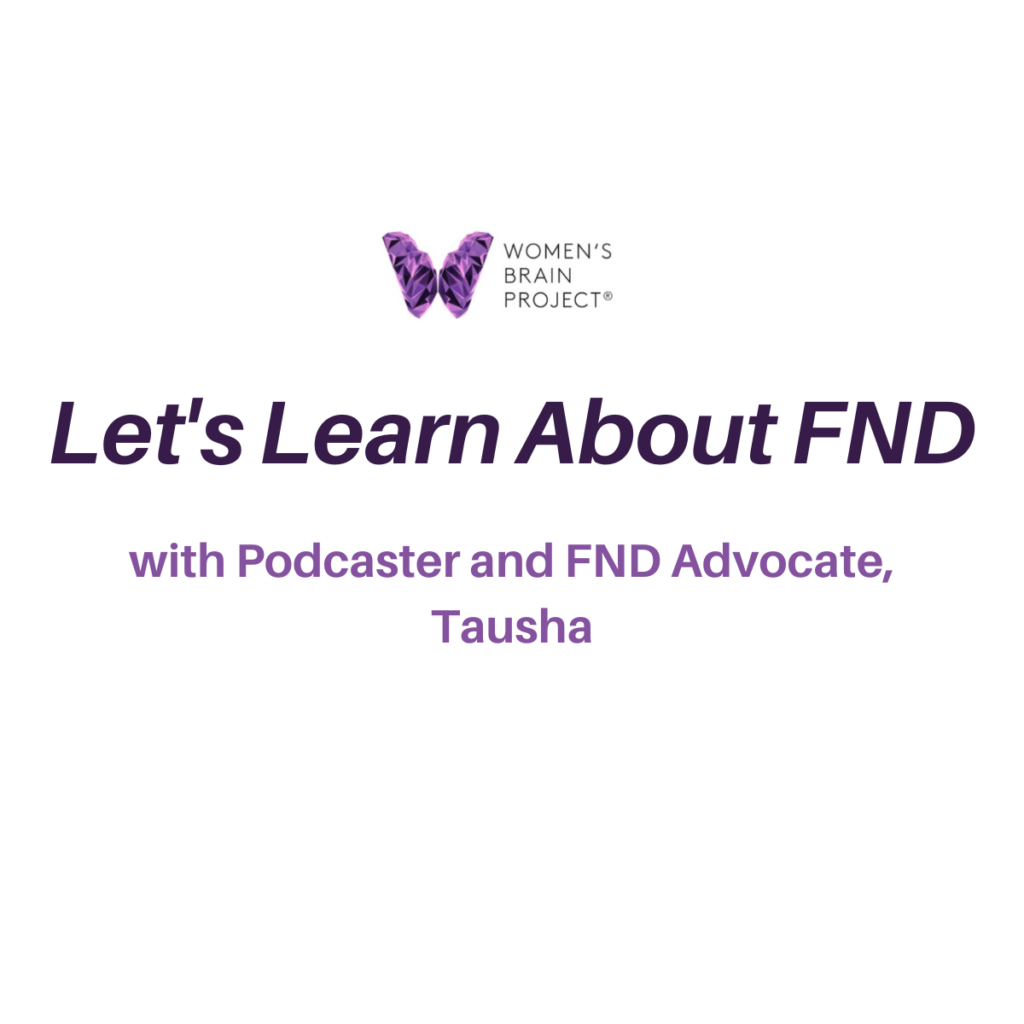
“Functional Neurological Disorder (FND) is a problem with the functioning of the nervous system and how the brain and body send and receive signals.” -FND Hope International The Women’s Brain Project had the honour and pleasure of interviewing Tausha, a WBP supporter and young woman living with FND. She shared her experience from diagnosis and […]
Introducing a Precision Prevention Approach to Brain Health— Spotlight on Risks and Prevention Through a Gender Lens
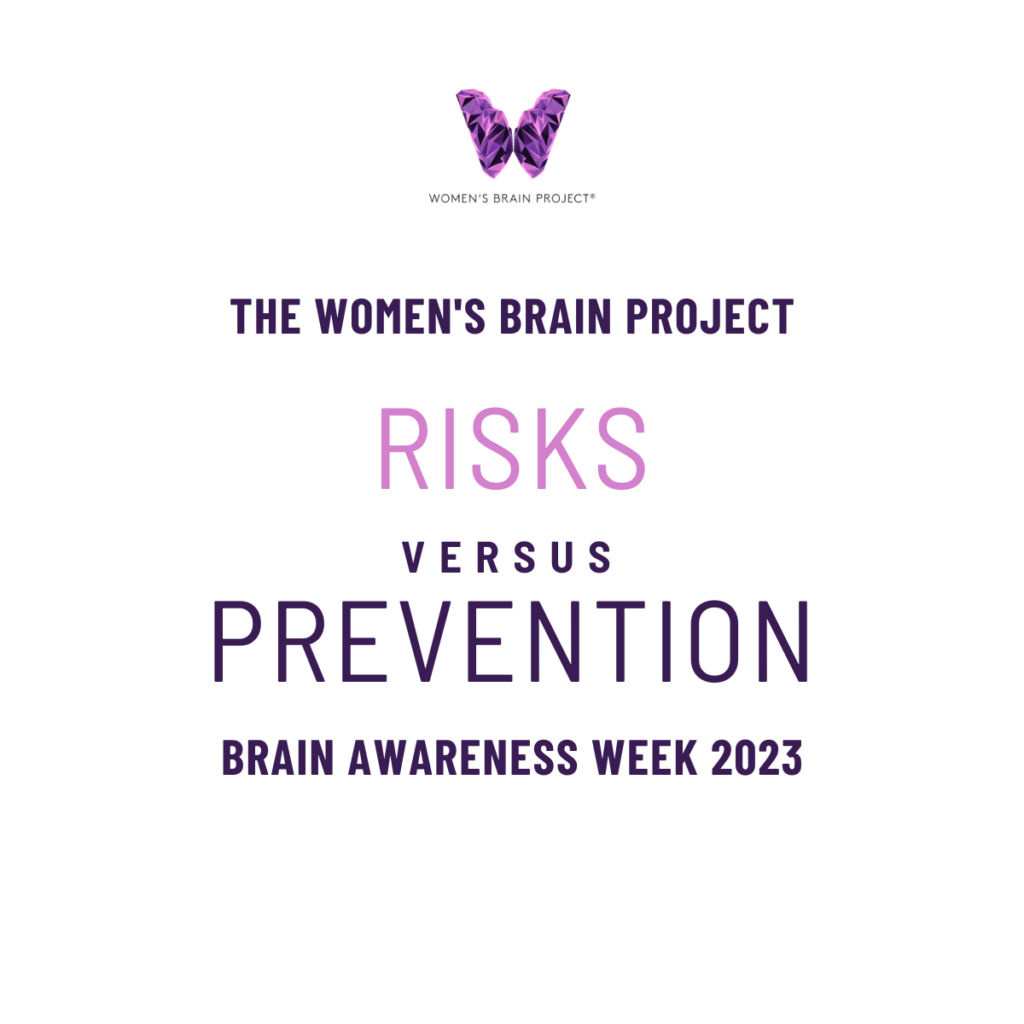
Happy Women’s History month! This week (March 13th – March 17th) is also Brain Awareness Week. At some point in their lives, one in three people will develop some type of neurological disorder – the leading cause of disability and the second leading cause of death (after heart disease). In honour of Brain Awareness Week, […]
Pioneering Analysis Highlights The Economic Benefits Of Investing In Sex-And-Gender Specific Brain Research

By Dr Antonella Santuccione Chadha As the CEO of the Women’s Brain Project, I am immensely proud that on the occasion of International Women’s Day, 8 March 2023, we are launching a new White Paper that we commissioned to Economist Impact, which examines the economic benefits of investing in sex-and-gender specific brain research. The WBP […]



